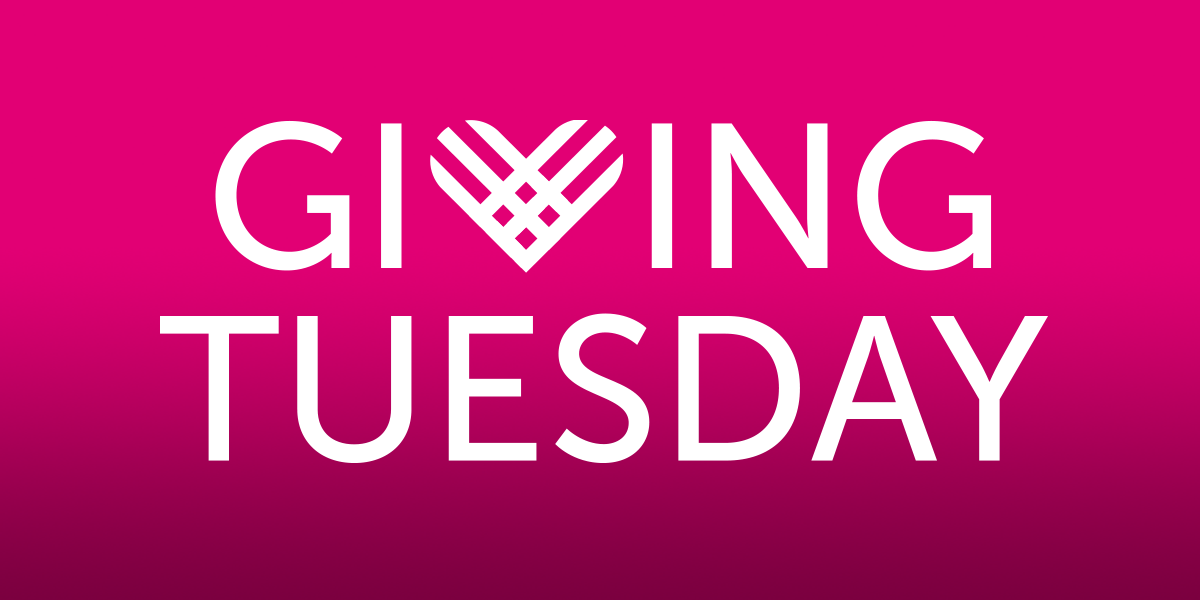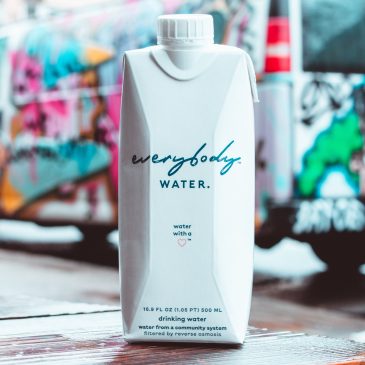Blog
The Most Effective Ways for Brands to Support Disaster Relief: Lessons from Hurricane Maria

Earlier this month, on Giving Tuesday, T-Mobile led a campaign to inspire its customers, fans and employees to engage in online philanthropy. Every time someone tweeted #GivingOnUs, T-Mobile donated 10 meals to Feeding America, the nation’s largest hunger-relief nonprofit. Whenever a customer saved a deal on the T-Mobile Tuesdays app, the company donated a meal. In all, T-Mobile and millions of its community members helped donate 5 million meals to hungry families across the U.S. Over the course of 2019, T-Mobile funded another 10 million meals with its Slow Cooker Sunday Cookbook initiative.
T-Mobile further empowered employees to give back in a hands-on way by putting together 100 events across the country to support food banks for the holiday season. The brand also added $25 to every employee’s giving account to encourage them to make charitable donations to causes they personally care about.
Why would a wireless carrier spend crucial time and resources on fighting hunger and other important causes? For T-Mobile, it’s about putting energy behind causes its community and employees care about most, creating a movement that is purpose-driven and has BIG impact.
I recently spoke with Janice Kapner, EVP of Communication & Community Engagement at T-Mobile about purposeful leadership, as well as audience and employee engagement — to offer insight to brands looking to lead with purpose. Here’s our conversation, edited for clarity.
Simon Mainwaring: Why did T-Mobile focus on Giving Tuesday?
Janice Kapner: Giving Tuesday is an opportunity to let our employees and customers engage when awareness is heightened. It’s also an opportunity to bring to life the ongoing set of engagements we’re doing throughout the year
SM: Can you speak about T-Mobile’s commitment to impact and give us context for how Giving Tuesday fits in?
JK: Any company can claim that they’re committed to doing good. The difference between doing a few things, and actually making it part of who you are, starts with your employees. You identify centers of gravity where employees want to support various causes, embrace them and create opportunities for your employees to evangelize.
We believe in listening to our employees, customers and fans. They all have a lot of passion for our brand and for doing good. There’s a huge opportunity for bringing those parts together to make a big impact. Giving Tuesday is a great example — it’s genuine, elicits engagement, and it allows us to lead a major campaign with impact across the country. The cherry on top is that we try to bring what we call our “Un-carrier spirit” to it by creating campaigns that aren’t predictable. That’s because it’s hard to break through in today’s noisy climate. You need to light up your people. You can’t light up your people if they don’t have passion for what you’re talking about.
SM: What tools do you use to find out what things your employees are interested in? And once you figure it out, how do you share what employees have done, so it informs the culture of the company?
JK: The key is listening through multiple channels. We have a regional grants program funded by the T-Mobile Foundation, where employees can propose organizations in their communities that they’d like to donate money to. This year we donated more than $1 million dollars through this program to local charities that our employees across the country are passionate about.
We also do donation matching, up to $2,000 a year. Since we launched our matching program, we’ve generated more than $13 million in charitable giving. We’ve also matched nearly 200 thousand hours of volunteer time. The best part is that we’ve got a portal where employees can pick where they want to donate and spend their time. That information gives our management team an idea about where employees want to play in the future.
Our CSR team also goes out and engages with our regional vice presidents around the country, who tell them about existing programs and give feedback.
We ask our customers, too. A couple years back we did a Giving Tuesday campaign where we had four different charities for people to select from — Feeding America, Team Rubicon, The Boys & Girls Club and The American Red Cross. We saw a lot of energy go to Feeding America, so we listened, and doubled our efforts with them since then.
For all of our programs, we announce, promote and share results internally and externally so people know. It’s an ongoing rhythm, an ongoing set of activities and subsequent updates.
SM: Are there examples of how you’ve showed up in a different way that you’re particularly proud of?
JK: One of my personal passion projects is T-Mobile’s Changemaker Challenge. It’s all about providing opportunity for youth to create an idea they think will change their community for the better, and we had more than 400 submissions this year. We work with a third-party partner, Ashoka, to pick winners, then we bring them to T-Mobile headquarters to participate in a 3-day educational lab. We donate seed money so they can take their programs and make them real. I sat through a day of presentations from these young people and I’ve never been so inspired.
SM: Do you do anything to keep CSR priorities alive internally?
JK: Our community holds us accountable! In this day and age, millennials want to do business with brands that actually do good CSR work. People want to purchase products from companies that advocate for causes they care about. That’s the climate we’re living in. Our employees and our customers won’t let us ignore that.
It’s more about keeping it evergreen and growing, rather than programmatic rewards and recognition. You can recognize people for what they do, but that can easily become lip service. We listen to our people and change and evolve our programs. We have an active engagement philosophy and our employees respond to that. You can make CSR part of your DNA or you make it a one-and-done program, and at T-Mobile, it’s part of our DNA.
SM: How do those expectations show up for the customer
JK: When we announced the potential T-Mobile merger with Sprint, we said we hope to launch Project 10 Million, which would provide wireless service for 10 million underprivileged homes, bridging the homework gap with our new, wider network. We also announced that we will give away free service to first responders. When we made that announcement, our employees, hundreds to thousands of them, wrote to senior executives, saying, “I’ve never been so proud to work anywhere in my life.”
We’re a for-profit company, and we have shareholders, but that doesn’t mean we don’t have enough breathing room in our portfolio to do good things. Customers talk about how amazing it is that a company on the precipice of a big merger would go do this kind of thing, saying how great it makes them feel about doing business with our company. It was a groundswell both internally and externally in response to an announcement that showcased the kind of company we plan to be.
SM: What learnings can you share as you’re keeping this balloon up in the air?
JK: One, you have to be authentic. Two, you have to be committed. In this day and age, everything comes out. You can’t rally your people behind something that isn’t genuine, meaningful and sustainable. If it’s not sustainable, it becomes clear that it’s not genuine. You have to be committed to being okay with change.
SM: What’s your advice on what should drive change? Should it be a brand’s internal purpose-driven compass? Or should it be a function of listening internally and externally?
JK: I think the intersection of the two is important. Take our Generation T programs, for example. We bring Boys & Girls Club youth into stores and show them what it’s like to have a career in retail and technology, what it’s like to be a manager running a store.
We know that technology and mobile phones play a major role in our brand, so we created an intersection between these things and the way we give back to the community. Our partnership with the Boys & Girls Club creates a natural cross-platform between our brand and the youth focus that our employees are excited to engage with.
SM: What would your advice be to someone who may lose hope? How do you inspire employees, consumers and other brands to contribute in their own way?
JK: You can’t give up. It doesn’t matter if you’re making a 2% dent or an 80% dent. You’re making a dent. Then you inspire other people to do it, and then they inspire other people to do it. That’s how movements begin! It’s like a field of wildflowers — you scatter a lot of seeds, things grow and bloom. If you don’t ever scatter the seeds, then nothing grows.
In your most down moments, let yourself be down. Then get up and think, “What’s one step I’m going to take?” It may not be as fast as you want but it won’t happen at all if you throw your hands up.
SM: What would you say to brands that are constantly wringing their hands over the ROI of being impactful?
JK: T-Mobile was in a rough spot seven years ago, but we managed to look at opportunities to give back even before we were profitable. It’s attracted better talent and helped to build up our culture. It makes people want to stay here, and it makes consumers proud to buy from us.
Don’t do yourself the disservice of not giving back! You don’t have to spend millions of dollars — you can start small, learn, build confidence, and see what grows. If you don’t start somewhere, you’re subsequently going to hurt your business. Don’t look for an ROI out of the gate. If you do good work, you’ll feel good about it as humans — and you’ll find that it’s good for your business and your brand in the long run.

The Most Effective Ways for Brands to Support Disaster Relief: Lessons from Hurricane Maria

Purpose At Work: How Everybody Water Accelerates Growth and Impact

